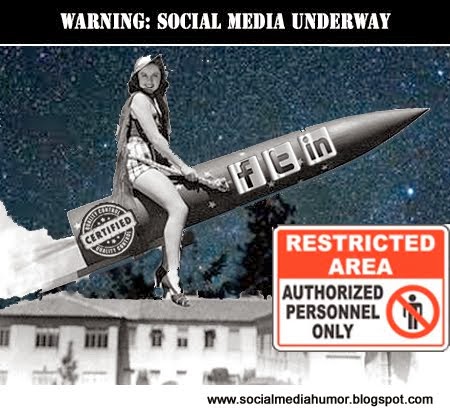SEO vs. SEM: the Real War for Top Placement
Forget net neutrality, there's a bigger war taking place online today. It's the battle between search engine optimization (SEO) versus search engine marketing (SEM) to get to the top of the search engine result pages (SERP). And the most shocking thing about it is most business leaders don't realize that the two practices are working against each other.
Wait a second? Did he just say SEO and SEM compete against each other? Yep. Most companies erroneously use the terms interchangeably which is at the crux of the problem. So let's first start with an explanation of terms.
SEO is a practice of tailoring or "optimizing" the contents of your websites, landing pages, pdfs, videos, and social media posts so that your brand (product, service, company, or client) comes up at the top (or close to it) when someone performs a search. While SEM is the practice of bidding on placement of your brand in the designated marketing areas of a search engine and/or their partner sites for contextual advertising, and paid inclusion.
But let's simplify that further in a way that makes sense to all businesses. SEO = free. SEM = paid. And the overwhelming percentage of a company's SEM costs is due to the fact that they do their SEO poorly, inconsistently, or were late to the game. True, the on-going costs of an SEO service or company are not free, but they are fixed and you are not in a bidding war against all your competition. And some people prefer the paid searches as they are highlighted and/or appear first.
Search marketing is deployed by many sites not just search engines. LinkedIn lets job applicants appear at the top for a fee when applying to positions, for example. Dating sites let you highlight your profile and your face appear at the top of searches for a price. But these non-search engine sites do not let you optimize your profile like you are able to optimize your web content.
Search engines (e.g. Google, Bing, Yahoo, etc.) actually are giving you a choice of whether you want to pay or not. And they actually reward those who adhere to their search algorithms standards (white hat SEO practices) with top positions.
The irony is that SEM is winning this war simply because SEO practices are so widely ignored. Listen, no one said Google or its search algorithms were easy to understand. Or keep up with. They change it periodically for two reasons: one to improve customer searching satisfaction, and two, to prevent all the tricks (black hat practices) SEO companies and webmasters devise to cheat the system such as bogus or reciprocated back links, replicated sites, irrelevant bloggers, etc.
As I like to tell people, I've literally been doing Google Adwords before Google was. The early keyword bidding companies have been gobbled up (or Googled up as the case may be) since then, but those were simplier days. Now Google Adwords and the Bing/Yahoo Advertising are the one that matter for most businesses.
But SEM has become significantly more customizable (read complicated). Then there's Ad Tech that watches your browsing habits and serves you ads based upon your history. More and more companies are creating SEM manager positions and less towards SEO. I'm not saying SEM doesn't have it's place. Some of it actually aids in ranking because it drives more viewers to your site. But SEM should be the foot soldier not the General leading your marketing efforts.
What about the browsers? Where do they fall in this SEO/SEM war? Each browser calls them something different (add ons, extensions, extras, plugins etc.) and I guarantee that Adblock is at the top of the most downloaded. People have it in their power to block all those ads automatically. More tweaks let you easily block those bots that track your every move. I've been using these so long that I'm often confused when people complain about the ads on their gmail, facebook, news sites, everywhere because I no longer see them.
Once the general public catches onto the ad blocking plugins, the SEO/SEM war will heat up even more. Such things as pop-under ads, and pay-per-view ads (not to be confused with pay-per-click) will become more prevalent. If you're wondering, I am often paid to do both so think of me as Switzerland when it comes to this battle. But for now, those putting all their funds into SEM and not SEO may regret it in the long run.
Wait a second? Did he just say SEO and SEM compete against each other? Yep. Most companies erroneously use the terms interchangeably which is at the crux of the problem. So let's first start with an explanation of terms.
SEO is a practice of tailoring or "optimizing" the contents of your websites, landing pages, pdfs, videos, and social media posts so that your brand (product, service, company, or client) comes up at the top (or close to it) when someone performs a search. While SEM is the practice of bidding on placement of your brand in the designated marketing areas of a search engine and/or their partner sites for contextual advertising, and paid inclusion.
But let's simplify that further in a way that makes sense to all businesses. SEO = free. SEM = paid. And the overwhelming percentage of a company's SEM costs is due to the fact that they do their SEO poorly, inconsistently, or were late to the game. True, the on-going costs of an SEO service or company are not free, but they are fixed and you are not in a bidding war against all your competition. And some people prefer the paid searches as they are highlighted and/or appear first.
Search marketing is deployed by many sites not just search engines. LinkedIn lets job applicants appear at the top for a fee when applying to positions, for example. Dating sites let you highlight your profile and your face appear at the top of searches for a price. But these non-search engine sites do not let you optimize your profile like you are able to optimize your web content.
Search engines (e.g. Google, Bing, Yahoo, etc.) actually are giving you a choice of whether you want to pay or not. And they actually reward those who adhere to their search algorithms standards (white hat SEO practices) with top positions.
The irony is that SEM is winning this war simply because SEO practices are so widely ignored. Listen, no one said Google or its search algorithms were easy to understand. Or keep up with. They change it periodically for two reasons: one to improve customer searching satisfaction, and two, to prevent all the tricks (black hat practices) SEO companies and webmasters devise to cheat the system such as bogus or reciprocated back links, replicated sites, irrelevant bloggers, etc.
As I like to tell people, I've literally been doing Google Adwords before Google was. The early keyword bidding companies have been gobbled up (or Googled up as the case may be) since then, but those were simplier days. Now Google Adwords and the Bing/Yahoo Advertising are the one that matter for most businesses.
But SEM has become significantly more customizable (read complicated). Then there's Ad Tech that watches your browsing habits and serves you ads based upon your history. More and more companies are creating SEM manager positions and less towards SEO. I'm not saying SEM doesn't have it's place. Some of it actually aids in ranking because it drives more viewers to your site. But SEM should be the foot soldier not the General leading your marketing efforts.
What about the browsers? Where do they fall in this SEO/SEM war? Each browser calls them something different (add ons, extensions, extras, plugins etc.) and I guarantee that Adblock is at the top of the most downloaded. People have it in their power to block all those ads automatically. More tweaks let you easily block those bots that track your every move. I've been using these so long that I'm often confused when people complain about the ads on their gmail, facebook, news sites, everywhere because I no longer see them.
Once the general public catches onto the ad blocking plugins, the SEO/SEM war will heat up even more. Such things as pop-under ads, and pay-per-view ads (not to be confused with pay-per-click) will become more prevalent. If you're wondering, I am often paid to do both so think of me as Switzerland when it comes to this battle. But for now, those putting all their funds into SEM and not SEO may regret it in the long run.




Comments
Post a Comment
What say you?